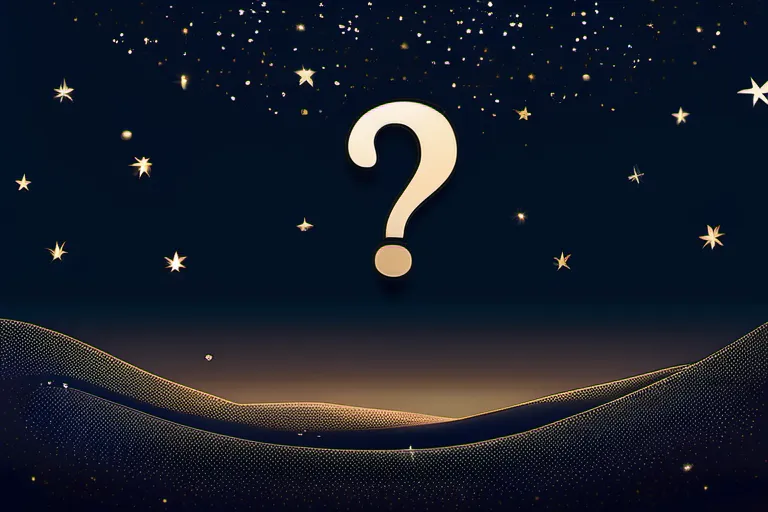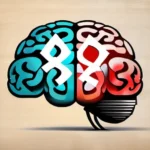Explore the fundamental beliefs, philosophies, and arguments of atheism in this comprehensive guide.
Atheism is a lack of belief in the existence of God or gods. In this article, we delve into the core beliefs that define atheism, its philosophical underpinnings, and the arguments that support it. Join us as we explore the fascinating world of atheism.
The Definition and History of Atheism
Atheism, a word that has often been met with curiosity and sometimes confusion, invites us to delve into its origins. Have you ever wondered about the roots of this perspective? How did atheism come to be, and what does it truly mean?
The term ‘atheism’ itself is derived from the Greek words atheos, meaning ‘godless.’ Historically, atheism has evolved significantly over time. From ancient Greece where philosophers like Democritus questioned the existence of gods to the more recent historical periods marked by the Enlightenment and the rise of scientific rationality—atheism’s journey is as diverse as it is fascinating.
But what exactly does atheism mean? Is it simply a negation, or does it have deeper philosophical underpinnings? Many people mistakenly believe that atheism is just about not believing in gods. However, this perspective overlooks the rich tapestry of ideas that form the core of atheistic thought.
Atheists often adopt positions based on various philosophies such as materialism, where everything that exists is tangible and natural; or philosophical naturalism, which posits that nature is all there is and nothing supernatural exists. These beliefs challenge us to think about our place in a universe without the divine intervention so commonly imagined.
Through history, atheism has been both feared and celebrated, often viewed as a threat to societal norms but also hailed for its courage to question authority. As we explore these ideas, it’s crucial to recognize that atheism is not just a lack of belief in gods; it’s a profound engagement with the world around us.
So, let us embark on this journey together and uncover the complexities of atheism—its history, its beliefs, and its role in shaping our understanding of the universe. How do you see your own place within this spectrum?
Atheism vs. Agnosticism: Key Differences
Atheism vs. Agnosticism: Key Differences
Have you ever found yourself wondering, ‘What’s the difference between atheism and agnosticism?’ These two terms are often used interchangeably, but they represent quite different perspectives when it comes to belief in gods or deities. Let’s dive into the nuances that set them apart.
Atheism is commonly understood as a lack of belief in the existence of any deity or god. But do we need to define what an atheist is? Isn’t the more intriguing question, ‘What does an atheist do with their beliefs?’ Atheists often engage actively in promoting secularism and scientific thinking, challenging religious claims through reasoned argumentation.
Agnosticism, on the other hand, is not about belief but rather about knowledge. An agnostic might question whether it’s possible to have certain knowledge of the existence or non-existence of a deity. Think of it as standing on a bridge, looking out at a vast ocean. Agnostics might say, ‘I don’t know if there’s anything out there beyond what I can see.’ This doesn’t mean they dismiss the possibility; rather, they acknowledge the limits of human knowledge.
So, is atheism a statement about existence, and agnosticism a stance on knowledge? Or are we missing something crucial here? It’s important to recognize that these labels aren’t fixed points in a rigid landscape but fluid concepts that can evolve as individuals do. Atheists might hold various views ranging from strong disbelief to more nuanced positions. Similarly, an agnostic could find their beliefs shifting over time based on new evidence or personal experiences.
Understanding the distinction between atheism and agnosticism isn’t just about labeling beliefs; it’s about grasping the complexity of human thought and inquiry. Both perspectives challenge us to consider what we know, believe, and how we navigate the vast unknowns of our existence.
The Philosophical Foundations of Atheism
The philosophical foundations of atheism are vast and varied, much like the ocean, they stretch as far as the eye can see. At the heart of these philosophies lies a profound challenge to the traditional belief in a deity or deities. One of the most powerful arguments against the existence of a supreme being is the problem of evil. How could a merciful and all-powerful God allow such vast suffering and pain to exist? This question, often called ‘The Euthyphro Dilemma,’ forces us to consider whether an omnipotent and benevolent entity would permit evil if it had the power to prevent it.
Another cornerstone of atheistic philosophy is the burden of proof. If someone asserts that a particular deity exists, shouldn’t they bear the responsibility to provide evidence? This echoes the famous quote by the French philosopher Jean-Paul Sartre: ‘Man is condemned to be free; because once thrown into the world, he is responsible for everything he does.’ Similarly, in the realm of religion and belief, proponents must justify their claims with compelling arguments rather than leaving it to others to disprove them. This principle turns the burden of proof on its head, shifting it from believers to non-believers.
The problem of evil and the burden of proof are just two facets of a broader critique. Atheists argue that belief in gods is unnecessary for moral and ethical living. They contend that humans can establish their own values through reason, empathy, and societal cooperation without relying on divine commandments or supernatural entities. This idea challenges the notion that morality cannot exist outside religious frameworks.
Exploring these philosophical arguments reveals a rich tapestry of thought that goes beyond simple disbelief in gods. It delves into questions of ethics, responsibility, and the very nature of existence itself. The journey through these ideas is not just about rejecting belief but actively engaging with some of the most fundamental aspects of human experience.
Atheism and Morality: Addressing Common Misconceptions
Atheism often gets a bad rap when it comes to morality, as if being without religion automatically equates to being immoral. But let’s dive into this misconception and explore how atheists can lead ethical lives independent of religious doctrine.
Imagine a world where ethics is like a garden, needing no divine gardener to tend to it. Atheists believe that moral principles can be cultivated through rational thought and human experience. If we consider the garden analogy, wouldn’t it make more sense for us to plant seeds of kindness, respect, and justice ourselves rather than relying on some mythical overseer?
One common argument against atheism in terms of morality is the idea that without a higher power enforcing good behavior, people would be free to do whatever they please. But this overlooks the complex interplay between human nature and societal norms. Just as laws govern our actions in society, so too do social contracts and personal values shape ethical behavior.
Consider the example of Utilitarianism, a philosophical framework that suggests actions are right if they promote happiness or well-being for the greatest number of people. This approach doesn’t require divine sanction; it operates on a simple yet powerful principle: do what brings about the most good and the least harm.
Moreover, atheists can draw upon a wealth of ethical theories to guide their behavior. From Kantian ethics, which emphasizes duty and respect for human dignity, to virtue ethics, focusing on cultivating positive character traits like honesty and compassion, there are numerous frameworks that don’t require belief in a deity but still provide robust moral guidance.
So, when we ask whether atheists can be moral without religion, it’s like asking if you need a gardener to grow a beautiful garden. The answer is no, because the tools for creating a moral and ethical life are within our reach, just waiting to be cultivated with care and intention.
The Role of Science in Atheism
The role of science in atheism is often seen as a dynamic dance, where empirical evidence and logical reasoning become the partners leading the way. How can we explore this relationship without delving into the depths of scientific discoveries? Isn’t it true that many atheists find solace in the clarity provided by science, which challenges traditional religious beliefs?
Consider the vast universe that modern astrophysics unveils: the complex structure of galaxies, the enigmatic forces of dark matter and energy. These phenomena challenge any creationist narrative, suggesting a cosmos without a designer or purpose, yet teeming with wonders. Could it be that science’s ability to explain the world without invoking gods is what draws many atheists to its side?
Moreover, when we look at evolution by natural selection—such an elegant explanation for the diversity of life on Earth—it stands as a testament to the power of scientific inquiry over supernatural explanations. But isn’t this also a profound argument against the necessity of religious doctrine in understanding our existence? Isn’t it more compelling to rely on evidence and logic than on unfounded beliefs?
Scientific discoveries often lead to a deeper appreciation for the natural world, which can be awe-inspiring enough without the need for divine intervention. When we consider the complexity and beauty of life through a scientific lens, isn’t it easier to see the universe as a vast, intricate system rather than a creation designed by a deity?
So, how do atheists view science? As a tool that not only explains but also demystifies the world around us. It challenges our understanding and forces us to question our assumptions. And in doing so, it provides a framework for understanding reality without the need for supernatural explanations.
Is atheism then simply a rejection of religion, or is it a celebration of the scientific method? Isn’t it more about embracing the clarity and power of reason over faith?
Atheism in Modern Society: Challenges and Opportunities
Atheism, much like its counterpart religion, faces challenges and opportunities in modern society. Have you ever pondered how atheism is perceived in today’s world? Many people still view atheists as outcasts or outsiders, but this perception is slowly changing. Let’s explore some of the key challenges faced by atheists and see where there are potential opportunities for growth.
One major challenge is the social stigma that can come with being openly atheist. Imagine walking into a room where everyone expects you to believe in gods; how would it feel if your response was met with disbelief or even hostility? This scenario highlights the need for open dialogue and understanding. It’s important to recognize that atheism, like any belief system, is just one way of viewing the world.
Another challenge lies within communities that traditionally place a high value on religious beliefs. In such environments, being an atheist can be seen as going against the grain. How do you navigate these social landscapes? It often involves finding supportive communities and building a network of like-minded individuals who share your views. This can help mitigate some of the isolation and loneliness that atheists might experience.
However, there are also significant opportunities for atheism to flourish in modern society. With advancements in technology and communication, it’s easier than ever to connect with others who share similar beliefs. Online platforms have given rise to vibrant communities where atheists can discuss their views freely, share resources, and build a supportive network.
Furthermore, the increasing acceptance of diversity and alternative belief systems opens up new possibilities for atheism. More people are questioning traditional religious practices and finding comfort in secular philosophies that offer meaningful ways to live life. This trend suggests that atheists have more opportunities than ever before to explore their beliefs and share them with others.
As we move forward, it’s crucial for atheists to embrace these opportunities while also addressing the challenges they face. By fostering understanding, promoting dialogue, and building supportive communities, atheists can contribute positively to modern society and continue to thrive in an increasingly diverse world.
Conclusion
 By understanding the core beliefs and philosophies of atheism, you will gain a deeper appreciation for this perspective on life and the universe. Whether you are an atheist yourself or simply curious about the subject, this article provides valuable insights into the worldview of atheism.
By understanding the core beliefs and philosophies of atheism, you will gain a deeper appreciation for this perspective on life and the universe. Whether you are an atheist yourself or simply curious about the subject, this article provides valuable insights into the worldview of atheism.











